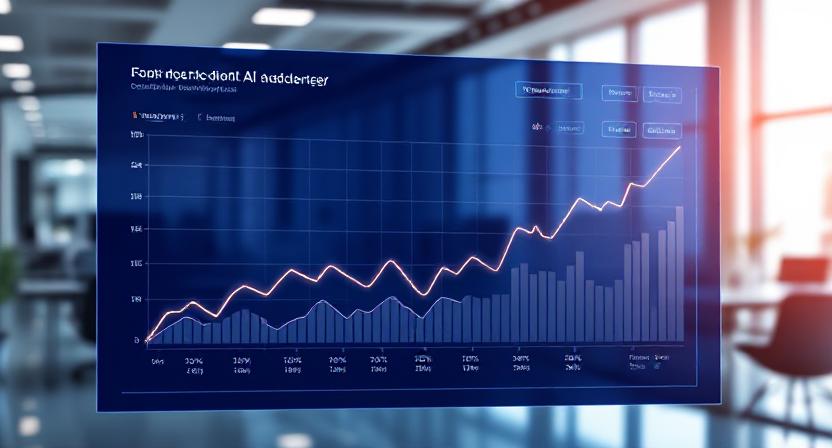78% of Companies Now Use AI to McKinsey

Gartner Reports 78% Enterprise AI Adoption by 2024 Artificial Intelligence AI has moved beyond being a futuristic concept. It is now a critical driver of...
⏱️ Estimated reading time: 3 min
Latest News
Gartner Reports 78% Enterprise AI Adoption by 2024
Artificial Intelligence AI has moved beyond being a futuristic concept. It is now a critical driver of business transformation. According to Gartner’s latest statistics 78% of enterprises have adopted AI by 2024. This rapid adoption reflects AI’s growing importance in competitive strategies, operational efficiency and innovation.But what does this number mean for the future of businesses? And how will it shape industries over the next decade?
The Scale of AI Adoption
Gartner’s research reveals a dramatic acceleration in AI implementation across industries. Just a few years ago AI adoption was limited to early innovators and tech-driven companies. Today over three-quarters of enterprises have integrated AI into their processes.
Why AI Adoption Accelerated
- Post-pandemic digital acceleration
The pandemic pushed companies to automate and digitize faster. AI tools became critical for maintaining operations during disruptions. - Advances in AI capabilities
Breakthroughs in natural language processing, computer vision, and generative AI have made AI applications more accessible.
- For instance retail companies now use AI to forecast demand more accurately helping them reduce waste and boost profits.
- Likewise banks deploy AI to catch fraud in real time thereby safeguarding customers and avoiding financial losses.
Challenges in Enterprise AI Adoption
Despite its growth AI adoption faces obstacles. Gartner warns that scaling AI beyond pilot projects remains difficult for many organizations.Companies that address these challenges early will gain the most from AI in the long run.
AI as a Standard Business Tool
Just as spreadsheets and email became foundational in the 1990s so too will AI emerge as a basic operational requirement across businesses.
Consequently organizations will integrate AI within core functions such as HR finance sales and product development to remain competitive and efficient.
Industry-Specific AI Solutions
Specifically we’ll see more tailored AI applications healthcare AI for diagnostics legal AI for contract analysis and manufacturing AI for predictive maintenance.
Rise of AI Governance Frameworks
Moreover with AI becoming ubiquitous companies will need robust governance policies to ensure responsible use manage risk and comply with regulations.
Competitive AI Arms Race
Enterprises will compete not just on having AI but on how well they use it. This will push innovation in AI-powered decision-making and automation.
Economic Transformation
AI adoption could significantly impact global productivity. McKinsey estimates AI could add $13 trillion to the global economy by 2030.

The Role of Generative AI
In 2024 generative AI moved from exploratory pilot tools to mission-critical enterprise solutions. AI spending soared from $2.3 billion in 2023 to $13.8 billion signaling serious strategic adoption.
Adoption Soars Usage Expands
- According to a McKinsey survey 65% of organizations were regularly using generative AI nearly double the figure from ten months earlier.McKinsey & Company
- Globally 315 million users were actively engaging with generative AI tools like ChatGPT Gemini and Claude in 2024. This uptake is projected to continue climbing in the coming years.
The Bottom Line
However the journey is just beginning. Future success will depend on how effectively enterprises use AI not just whether they adopt it. Those who integrate AI into core decision-making maintain ethical practices and adapt quickly to new AI advancements will lead their industries.In other words in the AI era survival is not about size it’s about speed adaptability and intelligence.
Related Posts

Share Your AI Gems: Google Gemini’s New Feature
Google Gemini’s Gems: Share Your Custom AI Assistants Google now empowers you to share your...
September 18, 2025

Justice and AI Fairness Costs Under UNESCO Spotlight
Balancing Fairness and Public Safety in AI Judgment Systems New Academic Findings Artificial intelligence is...
September 12, 2025

Justice System AI Fairness Costs Revisited by UNESCO
AI in Criminal Justice Balancing Fairness and Public Safety Artificial intelligence AI has become an...
September 11, 2025











Leave a Reply